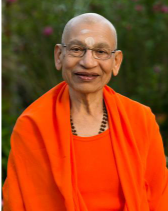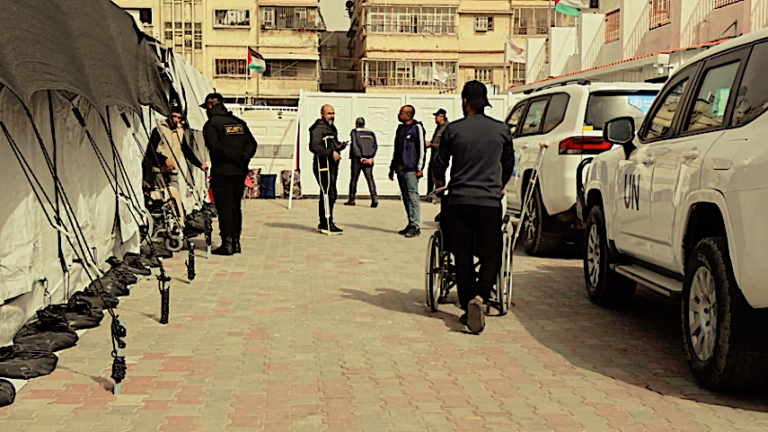
Spirituality

By Swami Viditatmanand Saraswati*
Pūrṇatvam (fullness) is the svarūpa (nature) of ātmā (self)
Thus, we believe that karma (action) is an instrument to attain external objects. We do not know that it is also an instrument to attain something internally. Once we get a clear understanding that there is an internal benefit at an individual level due to karma, then we will certainly be more welcoming to karma. We receive pleasure and also the grace of Iśvara from karma. This way, doing karma with respect, love and happiness are called karma-yoga. Bhagavān says, “mā phaleṣu kadācana – every time you perform an action, you do not have the right to ask, “What will I gain from it?”. You have the choice to perform action enthusiastically. However, the choice to decide what results to give for that action is mine, is of Iśvara.”
It is not like you will not be compensated if you do not worry about the compensation. If we perform karma, we will certainly be compensated appropriately whether we ask for it or not. Therefore, Bhagavān says, “Arjun, you depend on intellect, you depend on knowledge. You do not depend on bhoga, you depend on yoga, you depend on activity, not inactivity.”
Mā karmaphalaheturbhū is the third sūtra of catuḥsūtri. If you perform karma only with the purpose of getting a result of the karma, you will achieve limited results and will be deprived of the exceptional results of the karma. Instead, if you perform karma with the spirit of yoga, you will get what you ask for. Bhagavān says, “I fulfil all the requests of my devotees. If there is a desire to purify antaḥkaraṇa, gain knowledge or gain liberation, I will fulfil that desire. And if there is a temptation for material compensation, I will satisfy that temptation.” However, mā karmaphalaheturbhūhu – do not act with the hope of trivial, limited material achievements. Eventually, those achievements will definitely become a reason for unhappiness. By that, those achievements will become a cause of continuing the cycle of birth and death. No matter how many limited things you get, your inner desire will certainly not be satisfied. Your desire for happiness will not be satisfied by any of the achievements of the world. You will remain incomplete as before even after achieving material things and will never be able to come out of the cycle of birth and death. Therefore, perform karma to gain inner completeness rather than material achievements.
Where is that pūrṇatvam?
Pūrṇatvam is the svarūpa of ātmā; it is my own nature. There is no happiness anywhere else other than ātmā. Therefore, except for ātmā, the self, happiness cannot be found anywhere else. What pleasures does a jñānī mahātmā enjoy? What wealth does he have? Neither jñānī mahatma enjoys any pleasures nor does he have any wealth. ātmanyevātmanā tuṣṭaḥ – he is happy with himself, by himself. He does not need anything except for himself to get satisfaction and happiness because happiness is the nature of ātmā. The happiness that I am longing for is the svarūpa of the ātmā, the self. It is not necessary to search for happiness or to go somewhere to get it.
Then, why do I feel that I am deprived of happiness?
That is because I have my own imagination about what happiness is and where I get it from. The desire to achieve those assumed means of happiness and the raga-dveṣa resulting from them are depriving me of the happiness of my svarūpa. Therefore, Bhagavāna says that instead of making karma a means to gain happiness, make karma a means to free yourself from the obstacles of rāga and dveṣa. Do not perform karma in such a way that it increases your raga-dveṣa and desires. Perform karma in such a way that these obstacles atrophy. As the obstacles are removed, automatically natural happiness will emerge.
Mā te saṅgo’stvakarmaṇi You never identify with inaction. Arjun, do not make a decision such as “I will not perform action”. Karma is the only instrument you have using which you will be able to uplift yourself. You do not have any other means.
Also read: Spiritual Discourses: When our personality becomes ready for jñāna
Sometimes we think that by praying to God, we will be able to obtain what we want. That can also be done. Prārthanā, prayer is also karma. Along with performing the action, we can certainly pray also. However, we should never quite identify with or love in action. We should always be active.
Prasādabuddhi
Also, only Iśvara gives the results of action. Therefore, at the time of accepting the results of karma, we also have the faith that Iśvara is gracious and kind. He knows what we want. Therefore, let us assign Bhagavāna the work of deciding the results of actions. We should not decide the results of our effort. Iśvara is sarvajña, omniscient. He knows my necessities very well. Actually, I myself do not know what is best for me. When we have a stomach ache, we go to the doctor and take the medicine he prescribes. We do not decide ourselves what medicine to take because there is a possibility of getting the opposite outcome of deciding on a medicine based on our limited understanding. When we do not have sufficient understanding, we trust the doctor. I trust that I am not aware of the reason for my pain but the doctor knows it and can also remedy it. Similarly, because my understanding is extremely limited, I do not have the correct understanding of what I need in life, and what is my problem in life.
However, Iśvara is sarvajña and therefore, he knows precisely what is beneficial and what is not beneficial for me. Only those who have such an understanding can trust Iśvara. I take the medicine prescribed by the doctor faithfully. There is a need for faith everywhere in life. When we sit in a rickshaw, we have faith in the driver that he will take us to our destination. When we leave home and walk on the road, we have so much faith! Even when so many rickshaws, bicycles, buses, trucks etc. vehicles are going at a full speed on the road, we have the courage to walk on the road – because we have faith in the grace of Iśvara. Our heart is continuously beating. What if that beating heart misses a beat? But, it does not. It is the grace that soon after we exhale, inhalation takes place. Who is the one that keeps the heart beating? It is the grace of Iśvara. Who is the one that wakes us up in the morning after we go to sleep at night? It is the grace of Iśvara. We eat a variety of food, who digests that? It is the grace of Iśvara.
*Swami Viditatmananda Saraswati has been teaching Vedānta Prasthānatrayī and Prakaraṇagranthas for last 40 years in Ahmedabad, Gujarat. Throughout the year, he conducts daily Vedānta discourses, accompanied by retreats, and Jñāna Yajñas on Vedānta in different cities in India and in foreign countries.





